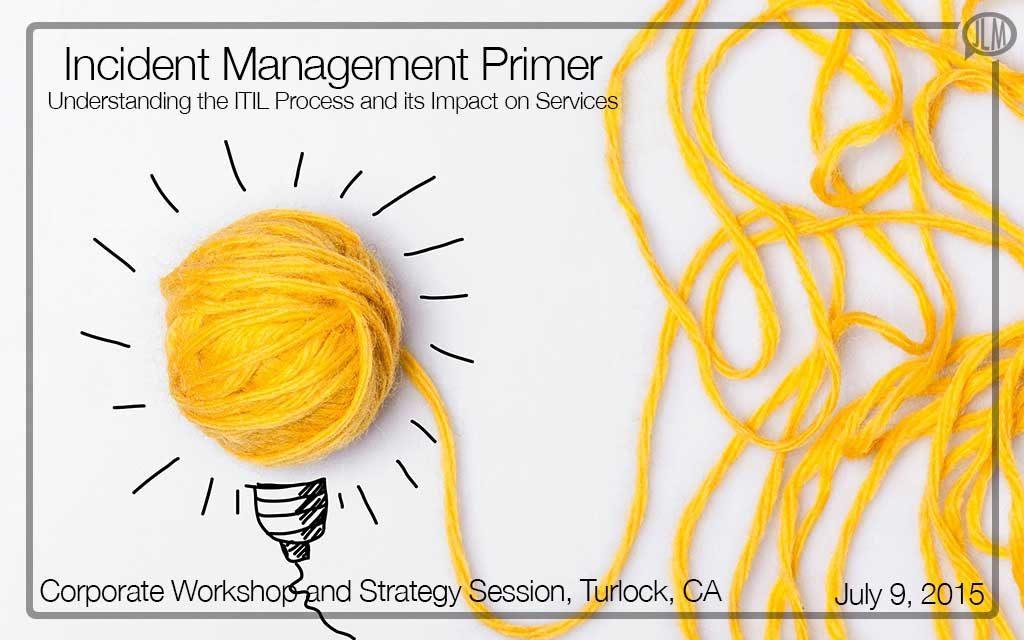![]()
Invited out to Turlock, CA to teach two corporate workshops: Incident Management Primer and Change Management Primer. What I enjoyed most about these courses is that they had real practical approaches presented to the client.

After the conclusion of the workshops, we then completed a strategy/design workshop to evaluate the current processes and identify improvements.
Strategy Session
The change management and incident management primers are a great tool to use as a catalyst for change within an IT organization. The two courses help to create a baseline understanding across the organization of two critical processes in the ITIL framework. When combined with the strategy session, the organization was able to establish a roadmap on how to move forward with improving the maturity of both processes.
Topic Overview
Change Management Primer
The purpose of Change Management is to assess, approve, monitor and control changes at the strategic, tactical, and operational levels within the IT organization, business, and suppliers. The process provides a critical focus on controlling change for minimizing the potential impact on production services.
Learners will develop a high-level understanding of the core building blocks of the Change Management process. The goal of the course is to understand the practical application of ITIL theory in a real-world setting.
Incident Management Primer
Moving from reactive to proactive problem management requires the organization to implement and adopt new techniques and methodologies to be successful. Proactive Problem Management is an important part of improving the quality of IT services. The analysis techniques require specialized skills to be effective. This session will look at the organizational structure and culture of the IT organization and help to define roles and responsibilities related to Proactive Problem Management. Strategies for effective Proactive Problem Management will be demonstrated and explored including Data Collection and Trend Analysis, Failure Mode and Effects Analysis, Component Failure Impact Analysis and Major Problem Reviews. Key measurements that demonstrate the business value of Proactive Problem Management will also be defined.


